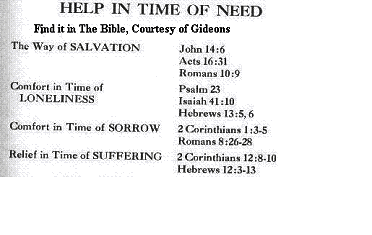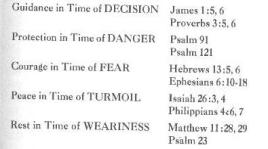|
from The Worldview Literacy Book copyright 2009 back to worldview theme(s) #9 |
|
Discussion #9A: Theologians
distinguish
religions built on myths ("mythos" in Greek) from those built
on reason ("logos" in Greek, although that translation is
disputed). Myths provide
metaphorical descriptions of important and mysterious aspects of
Reality, while reason attempts to provide actual, literal, factual
descriptions of these same things.
By holding onto literal interpretations of sacred religious
texts, religious fundamentalists are demanding that mythos be taken as
logos, such scholars assert. Other
analyses of such fundamentalism see it as a testament to faith and note
how its narrow worldview seemingly simplifies life.
By attaching monumental importance to ancient words and taking
them literally, one doesn't have to seek out wisdom more applicable to
21st century life, nor think about what exactly the ancient words mean.
And by living in obedience to the absolute moral authority of such
scripture one can avoid the nuances of depicting a modern ethical
dilemma (that one might otherwise wrestle with) in shades of gray and
instead paint it in the black and white of absolute certitude.
Most religions have their fundamentalists.
Protestant Christian fundamentalists literally interpret the
Bible concluding the world was created in six days as in the book of
Genesis. Added to their
belief in a young (less than 10,000 years old) Earth, are beliefs that
God parted the Red Sea, virgins give birth, the dead can be resurrected,
and that God can personally perform miracles for them. They reject much
of what modern science offers, including a 4.6 billion year old Earth,
evolution, and geologic time scale.
They see Noah's flood as a key event in shaping the Earth's
surface. They battle those
who object to teaching Biblical creationism alongside evolution in
public schools, those upholding separation of church and state built
into American democracy, those objecting to book burnings they've
sponsored—in general those holding
diametrically opposed views stated in "Global Vision," "Scientific
Method," "Secular Humanism," "Intellectual
Freedom" and other themes.
While most Jews believe the Hebrew Bible can't be
interpreted literally, Orthodox Jews and Hasidic Jews see the content of
some of Judaism's other sacred texts as the infallible word of God, and
often live more sober, traditional lifestyles.
The Qu'ran, Haddith, and Sunnah, are sacred texts
revered by Islamic fundamentalists, who typically prefer theocracy to
democracy and living under Sharia (religious-based) law rather than a
secular legal code. Notable here are the Taliban of Afghanistan and
Pakistan, those preaching Wahhabism who run schools known as madrassas,
and most of those who perpetrated the 9 /11 nightmare (Figure #8a). In clinging to a literal interpretation of ancient holy books, religious fundamentalists are hardly modern in their worldview. Their beliefs and related behavior has been critiqued as a psycho-logical disorder. Yet, while from a rational perspective defending such a worldview seems challenging (see Figure #9a), tens of millions of American adults seem comfortable with it. Fundamentalist or not, hundreds of millions more turn to religious holy books for comfort and inspiration (Figure #9c).
Figure
#9c |
Discussion #9B: Like
many true believers, religious fundamentalists often embrace
apocalypticism. Many
Christian fundamentalists believe that the events of the prophetic book
of Revelation need to occur before God's plan can be fulfilled.
Some lament current events and believe, citing various omens, the
End Times have started—what
Judeo-Christian tradition holds will be a period of great upheaval,
trial and tribulation that precedes the prophesized coming (or second
coming) of the Messiah. Many
await that with intense feeling
and passion known as messianic fervor.
Some expect the Messiah to lead the forces of God and good in a
climactic final battle against the forces of the Devil and evil
(what their Armageddon theology promotes). Of course just as one doesn't need to be
religious to be a fundamentalist—many of those embracing
"Scientific Materialism" (worldview theme #5A) and narrowly
clinging to scientism qualify—one doesn't need to be a religious
fundamentalist to subscribe to "Apocalypticism."
Those who do have fears falling into three
categories: 1) God's wrath or the Devil's victory over God
bringing the end of the world, 2) some
manmade global catastrophe—perhaps all out nuclear war or irreversible
environmental disaster, and 3)
cosmic catastrophes—events happening in space or objects arriving from there that
conceivably could end life on Earth.
Those working to avert the Apocalpyse recognize another, more
subtle danger: people being so sure the end is coming soon that they
employ an "end of game strategy" and treat neither other
people nor the environment very well.
In this scenario, the end comes from self fulfilling prophecy.
Figure
#9a
Figure
#9b
|
|
|
|

